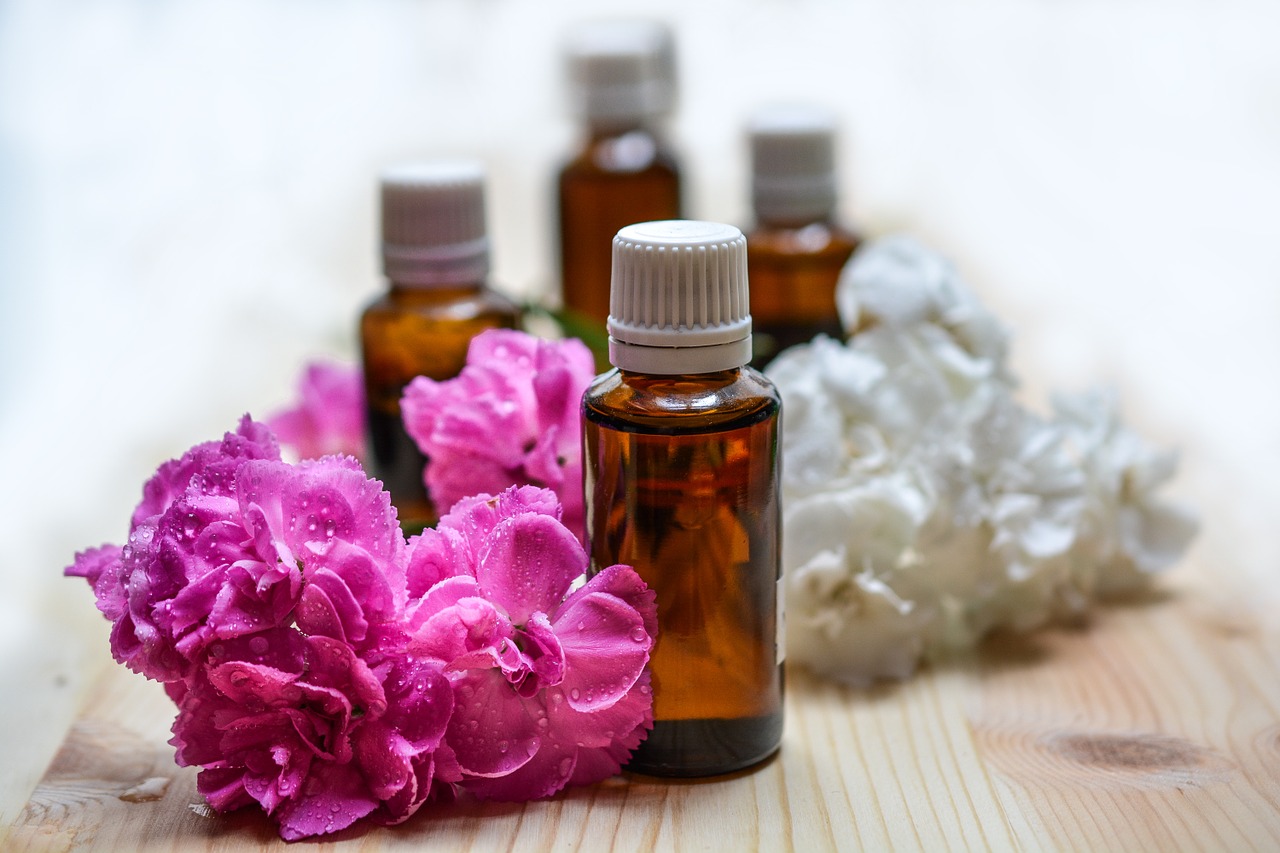If you have severe eczema that isn’t responding to self-care or traditional remedies, you have to look for magical potions. We don’t want to flatter the fact, but it is true that essential oils for eczema really work. Many doctors prescribe using them as an alternative treatment for skin that’s too sensitive to deal with other treatments.
You might be curious about the usage of essential oils as a complementary therapy along with the medicines you use. These oils are highly concentrated extracts that are distilled from several plants. These products are used essentially in aromatherapy and often diluted with a carrier oil for topical use.
Table of Contents
What is eczema?
Of course, it is a skin condition but how does it look? How does it feel? Here, we will tell you about eczema, its types, and how essential oils can cure them. Eczema makes your skin red, dry, and itchy. The skin condition can be mild to severe, and according to that, you might have constant itchiness, damaged skin, infection, and pain. In order to successfully manage eczema, you have to prevent the complications it comes along.
If your skin itches and becomes red frequently, you probably have eczema. The condition is common in kids but can happen to adults too. Eczema is often called atopic dermatitis, where atopic refers to allergy. People who have eczema tend to allergies that make their skin red and itchy. But there are different forms to it. Every type of eczema has its own triggers and symptoms. We will know all of that in detail here.
Types of eczema
There are possibly seven types of eczema that you might be facing. Some essential oils for eczema might work, while some might not. Check out the types to understand your condition better:
1. Atopic dermatitis
The most common type of eczema is atopic dermatitis. The condition usually happens when you’re a child and lessens as you grow older. Doctor refers to this condition as Atopic Triad, where triad means ‘three’. It refers to two diseases along with eczema, which are hay fever and asthma problems. Many people who have atopic dermatitis tend to face all the conditions.
Symptoms of atopic dermatitis
- Rashes often form creases in knees and elbows
- The skin might turn light or darker. Sometimes it can even become thicker.
- You might find tiny bumps that ooze out leaky fluids if you scratch them
- The skin can usually get infection when scratched and must be avoided at all costs
- Babies have these rashes on cheeks and scalp
Causes of Atopic dermatitis
The condition harms you when your skin’s natural shield against foreign elements becomes weak. Your skin becomes irritated and easily allergic. Atopic dermatitis happens due to factors like:
- Dry skin
- Genes
- Problems in immune system
- Environmental triggers
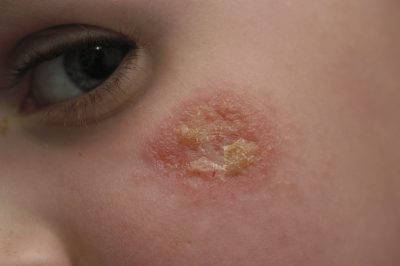
2. Contact dermatitis
If your skin becomes red or irritated as a reaction of something you touched, your condition might be contact dermatitis. This tends to happen either because the allergic dermatitis is the reaction of your immune system or it is metal. The irritant contact dermatitis starts when a chemical substance irritated the skin.
Symptoms of contact dermatitis
- The skin starts itching, become red, stings, and burns
- The itchy bumps known as hives can pop up on the skin
- These lead to fluid-filled blisters will ooze out or crust over
- With time, you might find the skin thicken, feel scaly, and leathery
Causes of contact dermatitis
You can have dermatitis when you touch something that irritates the skin and causes an allergic reaction. The possible objects that can lead you to this are:
- Bleach
- Detergents
- Jewelry
- Nickel
- Latex
- Poison ivy
- Poisonous plants
- Paint
- Solvents
- Soaps
- Perfumes
- Smoke from tobacco
3. Dyshidrotic eczema
In this case, you will find the skin having small blisters. This type of eczema usually happens on feet and hands, and more common in females than males.
Symptoms of dyshidrotic eczema
- Again, the blisters are filled with fluids that form on the toes, fingers, palms, sole of feet
- The skin can crack, flake or scale
- The blisters will pain or itch
Causes dyshidrotic eczema
- Damp feet and hands
- Allergies
- Stress
- Exposure to substances like cobalt, chromium salt or nickel
4. Hand eczema
A type of eczema that only happens on the hands is called hand eczema. People who have jobs like cleaning, hairstyling, can have this condition. Since your hands are feeling irritable chemicals all, the time, this can happen to you.
Symptoms of hand eczema
- Cracks and blisters can happen to such chemical-prone hands
- You might feel itchy, dry and red
- Your hands get red, itchy, and dry
Causes of hand eczema
Since hand eczema usually happens due to chemical exposure of your hands, the probable causes are:
- hairdressing
- cleaning
- healthcare services
- drying or laundry services
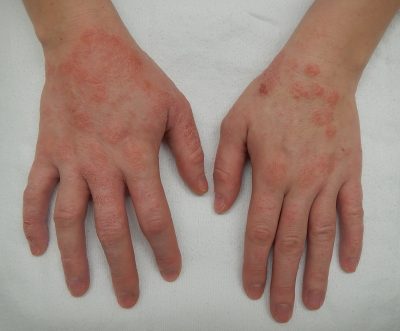
5. Neurodermatitis
This condition is a lot like atopic dermatitis. The eczema is thick and creates scaly patches on your skin.
Symptoms of neurodermatitis
- Scaly patches tend to happen in legs, arms, scalp, bottom of feet, neck, hands, genitals, back of hands
- The patches are usually itchy especially when you sleep or relaxed
- Scratching the patch can make it bleed and also get it infected
Causes of neurodermatitis
People who have other types of eczema already might lead to worse conditions like this. You can also face this if you have psoriasis. Doctors don’t know what causes the condition, but state that stress might trigger it.
6. Nummular eczema
The nummular condition reacts on your skin in a round and coin-shaped spots. Nummular is a Latin term for coin, and that’s how it gets the name. Nummular eczema looks different from other kinds of eczema and they usually itch too bad.
Symptoms of nummular eczema
- The eczema is round and shape like coins
- Your skin will seem itchy and scaly
Causes of nummular eczema
The condition usually happens after an insect bite or an allergic reaction from chemicals or metals. If you have dry skin, you can have this problem too. Nummular eczema often happens if you have atopic dermatitis already.
7. Stasis dermatitis
The condition happens when the fluid leaks out of weak veins. It causes redness, swelling, pain, and itchiness.
Symptoms of stasis dermatitis
- You might find the lower part of your leg swell up especially if you walk a lot more than you usually do in a day
- Your legs might feel heavy and achy
- You might have varicose veins that are thick and damaged
- The skin over the veins tend to be itchy and dry
- You might have open sores on the lower legs and also on top of the feet
Causes of stasis dermatitis
People who have problems in blood circulation and flow can find this condition on their lower legs. If valves, that push blood through the legs towards then heart don’t function properly, you might find blood pool in the legs. You might find swelling of veins or varicose veins in this condition too.
When to visit a doctor?
You have to visit a doctor if redness and itchiness don’t go away on its own. Eczema can interfere with your life and daily activities. If the essential oils for eczema don’t seem to work for you, it is best you consult a good dermatologist who can diagnose and cure your condition.
Treatment
Many times, eczema comes and goes, and you can treat it with essential oils for eczema. Check out some more medications available that might suit you along with the oils:
- Benadryl due to diphenhydramine content to control itchiness
- A cream that includes Corticosteroid to reduce itchiness
- If itchiness is severe you can use steroids like prednisone and control swelling
- Use calcineurin inhibitors like tacrolimus and pimecrolimus to reduce immune respond causing itchiness and redness
- Use antibiotics to treat skin infection
- Try light therapy to heal rashes with ultraviolet light
- Apply cool compress before running corticosteroid cream to make the medicine work easily on the skin
If the allergic reaction leads to a flare-up, you need to avoid things that trigger the condition further.
Best essential oils for eczema
It is time to find out which are the essential oils for eczema and psoriasis, and other similar skin conditions:
1. Tea tree oil
The tea tree leaves have lots of medicinal properties that make it an amazing ingredient for curing skin problems. From nail fungus to insect bites, from head lice to eczema, tea tree is an essential oil that works wonderfully.
According to a study, researchers found that minerals and herbs in tea tree essential oil affiliate can treat dermatitis. Although known to be one of the most effective oils, there is limited research about how well it works topically for eczema. Also, tea tree oil is pretty strong compared to other essential oils. You can have skin irritation from it. The best way to use tea tree oil is by diluting it with a carrier oil like sweet almond, coconut, argan, and then apply it on your skin.
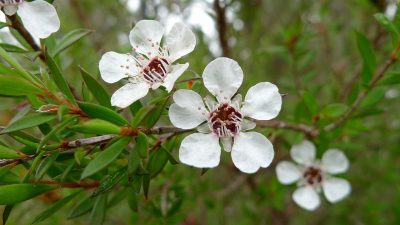
2. Peppermint oil
This oil comes with several health benefits and the ability to relieve indigestion and nausea. Some people state that applying it topically can reduce the level of itching. Peppermint oil has a high concentration level. You must mix it up with carrier oil and then use it.
First, use a few drops to avoid irritation completely. Don’t apply it on the face at any cost. Make sure you don’t apply it on the chest of infants or small children, as they can inhale the smell and that can cause danger. There isn’t much research on the goodness of peppermint oil for eczema, but you must be cautious about using it. It is best to speak to your doctor and then use it.
3. Calendula oil
Calendula oil is extracted from calendula, flower, or marigold. According to some studies, calendula has anti-inflammatory properties that when applied to the skin can reduce pain and swelling. However, there is no such research on how well calendula oil works for eczema, so you have to try it know how well it works for the symptoms. Again, it is best to speak to your doctor and go through a patch test before using it.
4. Borage oil
As per some studies, borage oil soothes skin that is prone to eczema. The oil includes fatty acids that the body converts to hormone-like substances with anti-inflammatory properties. Some people tend to have seen the skin improve and also the inflammation. But the results in the studies differ from one to another.
5. Jojoba oil
The plant of jojoba oil helps extract and create oil. The product is used as an ingredient in different parts of the body, like lotions, face cleansers, shampoos, and more. Jojoba oil includes anti-inflammatory properties that can soothe your skin and reduce irritation. The oil works as a moisturizer. It closely resembles human sebum, which is an oily substance secreted by the hair and skin.
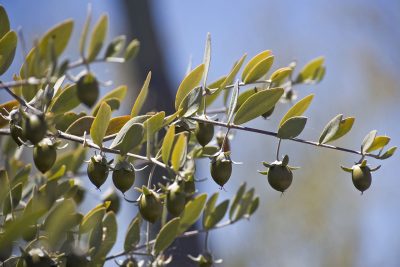
6. Coconut oil
Due to antimicrobial properties in coconut oil, you can expect your eczema to soothe down. The oil also has anti-inflammatory properties that can relieve skin dryness, cracked skin, inflammation, and more.
A study in 2013, showed how 117 children with eczema were given virgin coconut oil to be applied topically for eight weeks. Their skin showed amazing improvement within that time. However, some people claim that using coconut oil for eczema can lead to an allergy.
7. Sunflower seed oil
The sunflower seed oil is one of the best essential oils for eczema due to its anti-inflammatory properties. It reduces skin dryness and boosts instant hydration. The oil includes good amounts of vitamin E that reduce inflammation on the skin. Thus, it can be useful for treating eczema as well.
Final thoughts
Some of the essential oils for eczema are related to reducing inflammation and improve moisture. This makes them helpful for skin that is prone to eczema. However, there isn’t much research that supports this.
You must use essential oils for eczema with caution as they can lead to allergic reactions. It is best to discuss with a doctor before using any of the oils. Maybe he’d suggest a product that includes essential oil as an ingredient but not the raw form. None-the-less, the oils do come to good use and it might always work for you as it did to most others.













